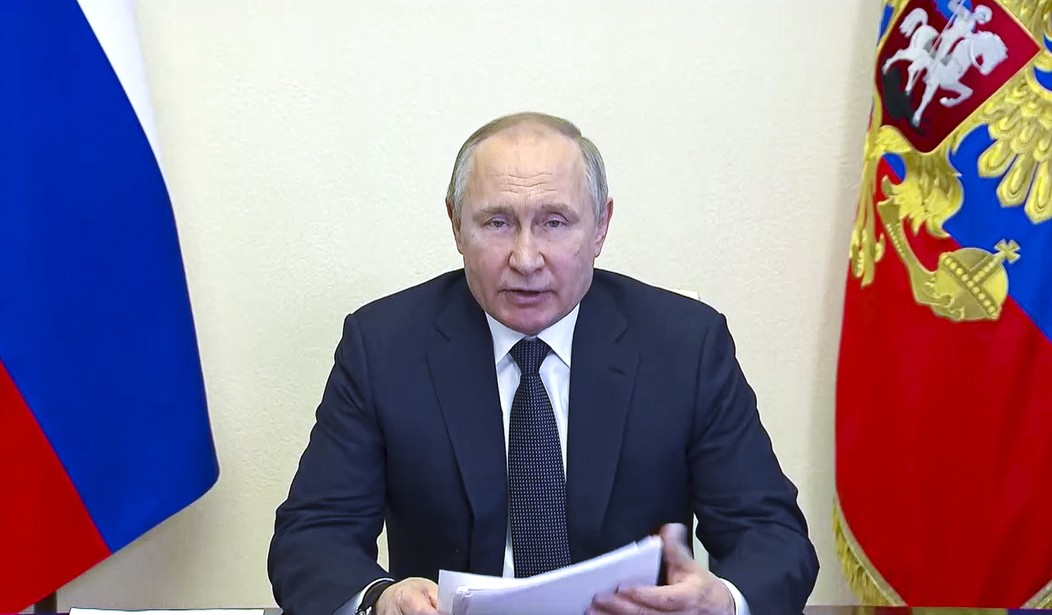It’s unthinkable to do business in a country that doesn’t respect property rights. Imagine the horror of building up successful franchises across several major cities, only to have the government effortlessly and quickly snatch up the company’s physical and intellectual assets. That is unfortunately the situation in Russia right now where companies such as McDonald's and Hasbro have had their intellectual property (IP) taken from them by an unstable and vindictive dictator. There appears to be little recourse available to the companies and workers caught in the crossfire of the Ukraine conflict. It will take some out-of-the-box thinking and invocation of prior precedent for theft victims to get their due, but the U.S. and her allies are up to the task. For the sake of property rights everywhere, Western policymakers must fight for justice and restitution.
When McDonalds opened its first branch in Russia, it was a momentous sign that the Cold War was finally thawing. Hundreds of Muscovites stood in line on a cold day in January 1990 to get their first taste of a Big Mac, markets, and capitalism. The era of improved relations is now in the rearview mirror, as seen by Putin’s recent decree legalizing the theft of Western companies’ IP. According to a report by Washington Post contributor Tim Carman, “[f]our days after McDonald’s announced it would temporarily close all its restaurants in Russia in response to the country’s invasion of Ukraine, a Moscow law firm filed an application to trademark a logo that looks as if the Golden Arches had been knocked on their side, like a toppled Soviet statue.” The endgame for Russia is an obvious one. If American and European companies refuse to do business in the country, Russia will simply reopen the shuttered shops with Russianized versions of the same brand.
It’s not surprising that a crazed strongman like Putin has little respect for IP rights. After all, Russia’s president is not above bombing Ukrainian cities into submission and repeatedly poisoning political dissidents. But, what recourse do aggrieved companies have to reclaim their stolen property? As it turns out, Western governments can pursue policies that would result in restitution without risking WWIII.
To understand how this might work, we need look only to the crimes of a similarly despicable regime in Venezuela.
Recommended
Hugo Chavez’s regime came to power in 1999 and rode a surge of oil demand through the 2000s that filled government coffers and created illusory economic success. Chavez’s plan ensured that regime officials would profit off these temporary gains as much as possible via nationalization and bribe payments from companies fearing expropriation.
When oil proved insufficient to fuel growth, the regime set its sights on another lucrative sector: gold mining. Crystallex had already been given the right to operate out of the Las Cristinas mine. Unfortunately, after Crystallex had invested hundreds of millions of dollars in equipment, community development, and mining operations, Chavez’s government promptly ripped the contract to shreds in 2011 and sold off the rights to another company.
After years of legal battles and international arbitration, Cystallex eventually won the rights to proceeds from the forced sale of Citgo assets. While Citgo is based in the U.S., its parent company (PDVSA) is owned by the Venezuelan government. Thus, companies with property stolen from them could still get their due so long as the perpetrating government (or close allies) has assets parked in the U.S. that could be seized for restitution.
Fortunately, there’s plenty of Russian government assets parked here in the U.S. According to a detailed account by Atlantic Council senior fellow Anders Åslund, assets taken from Russia’s state-owned enterprises are, “held predominantly in the United States and the United Kingdom, the two countries with good rule of law that allow anonymous companies on a large scale and have deep financial markets.” This money could be put into a restitution fund for theft victims if federal authorities put the time and diligence into comprehensively tracking these assets.
It won’t be an easy job, but Putin and his not-so-merry band of thieves must be held accountable. The whole world is watching.
David Williams is the president of the Taxpayers Protection Alliance.
























Join the conversation as a VIP Member